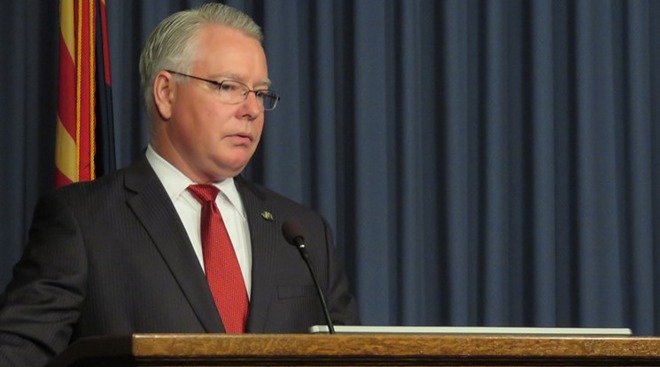As a result of Apple's refusal to help the FBI unlock San Bernardino shooter Syed Farook's iPhone, the Maricopa County, Ariz. Attorney's Office has announced that it will not allow workers to choose Apple's handsets as upgrades or replacements.

"Apple's refusal to cooperate with a legitimate law enforcement investigation to unlock a phone used by terrorists puts Apple on the side of terrorists instead of on the side of public safety," said County Attorney Bill Montgomery in a prepared statement. "Positioning their refusal to cooperate as having anything to do with privacy interests is a corporate PR stunt and ignores the 4th Amendment protections afforded by our Constitution."
Montgomery added that prosecutors have regularly secured warrants to unlock encrypted smartphones, "including iPhones sold prior to the release of the iPhone 7." It's not immediately clear why the office chose to refer to an as yet-unannounced handset.
Evidence obtained this way has allegedly proven "critical" in cases involving murder, drug trafficking, and other crimes. He suggested that Apple is concerned about "the potential for unauthorized access to an encryption key," and that if so, the problem should be dealt with in that context.
In a TV interview aired Wednesday, Apple CEO Tim Cook argued that in the future, the company could theoretically be compelled to create tools for surveillance if orders under the All Writs Act stand.
The Maricopa County iPhone ban may have relatively little impact, since the Attorney's Office says that it has 564 smartphones in all, of which 366 are iPhones. Montgomery concluded by saying that he can't do business with a company that interferes with an investigation into a terrorist attack.
"If Apple wants to be the official smartphone of terrorists and criminals, there will be a consequence," he said.


